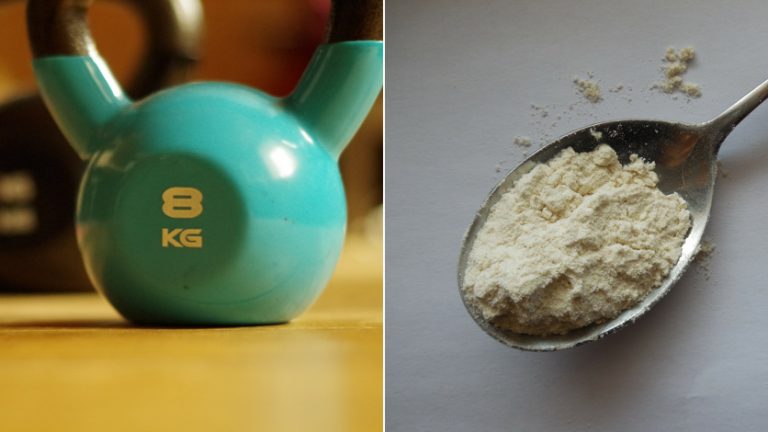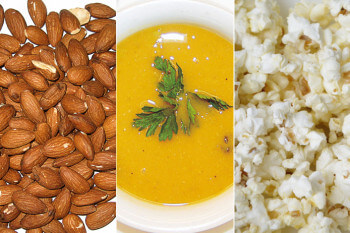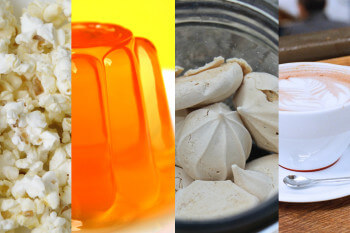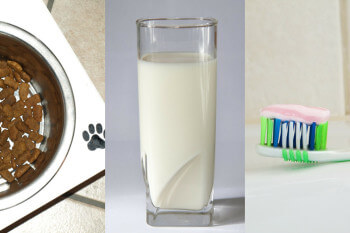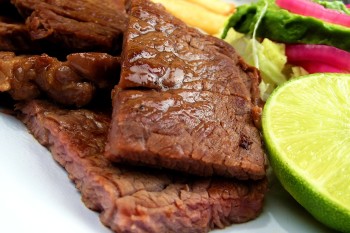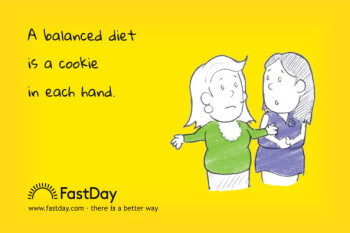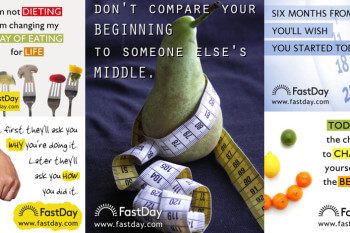Protein
One of the things that rings alarm bells for me is when people are using protein shakes or powders along with doing 5:2
One of the key messages from the researchers in the field of Intermittent Fasting and Calorie Restriction, such as Prof Valter Longo and Luigi Fontana, and supported by Dr Michael Mosley, is
that we should be limiting our intake of protein1, and getting as much of that protein as we can from plant based sources2.
Their maximum recommended intake of protein is 0.8g per kilo of body weight.
Protein, and in particular animal protein, raises our levels of IGF-1, which is a growth promoter that can lead to accelerated ageing and cancer. We need high levels of IGF-1 whilst young, but not when we are mature. Fasting helps us to reduce the amount of IGF-1 thereby reducing our risk of cell proliferation and the degenerative effects of ageing and potentially increasing our lifespan.
But what if you are weight training or exercising hard?
There is an awful lot of promotion of protein powders and supplements within the fitness and ‘health food’ industries. A lot of marketing hype and selective highlighting of questionable research.
Those who have been on the inside of the industry are starting to point out that really it is absolutely not necessary to follow a training session with an intake of protein. Provided you eat a reasonable meal within an hour or two, either before or after your training, your body can adequately repair and build muscle3.
It has been shown that even those on a specifically low-protein diet, because of kidney problems, can grow muscle[4]. It is the training that helps you to build muscle, not the protein. As long as you eat a well-balanced diet, then your body can provide the energy needed by your cells.
Excess protein is not better for you than having sufficient and may actually cause harm.5 6 7
Most protein powders are made from whey, an animal product and actually a by-product of food manufacturing. The food industry just loves to package up its waste and find a way to market it to you.
Protein Powder may contain all kinds of additives8 and as they are not controlled as a food would be, there is no regulation over their contents or sources. Sweeteners, gum, salts, flavourings, heavy metals…. These things really don’t go well with the idea of lifestyle that is intended to improve your health, especially when we are looking to reduce our intake of refined and processed foods.
Yes we need adequate protein, but there is no advantage to having more than is necessary. Eat a nice tofu burger. Eat nuts, seeds, legumes and leafy green vegetables. Make the most of quinoa and whole grains. Enjoy a steak or any other meat occasionally. Have a couple of eggs. Add some yogurt to get the benefit of some probiotics. Eat oily fish and get your Omega 3 fats at the same time.
Don’t listen to me, read what body builders have to say…
Brad Pilon (Eat Stop Eat) – How Much Protein Do We Really Need to Eat?
Robert Cheeke (Vegan Bodybuilding and Fitness) – No Whey Man, I’ll Pass on the Protein Powder
Or read the nutritionists, personal trainers and health coaches:
Eirek Garnas – Why You Don’t Really Need a Post-Workout Protein Shake
Julie Peláez – Why You Really Shouldn’t Use Protein Powders
Tony Schober – 6 reasons to stop using Protein Powder
Lauren Macdonald – 10 reasons to avoid Protein Powder and Supplements
Christopher Wanjek (Bad Medicine, Food at Work) – Protein Supplement Myth

